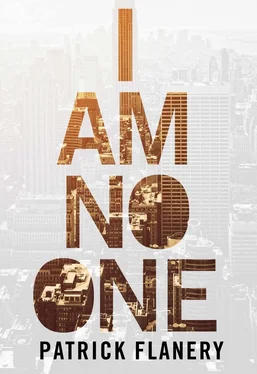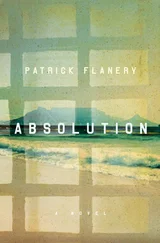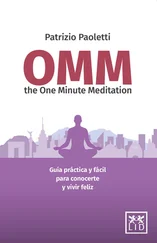‘You want me to rig it? I can’t rig it.’
‘You are senior to Bethan. She, perhaps, feels wounded by your behavior. You will be supportive of Fadia in ways Bethan will find persuasive. In any case, she might herself be on Fadia’s side, but you understand that given Bethan’s junior position in the College and the Faculty I cannot possibly approach her in the same way I trust I may confide in you.’
‘And pressure me.’
‘Pressure is too physical a word. We are not men of physics. I have been observing you and I know that we both understand how, from time to time, certain individuals need help. Fadia is one such person. She needs to come here, she needs to stay out of Egypt. I thought you, of all people, would understand. Mubarak’s Egypt is, in many respects, not unlike East Germany. There are more than a million security staff members monitoring the citizens of Egypt, who number less than eighty million. Egypt under Mubarak is a police state, nothing less, and a very nice one for tourists, provided they don’t find themselves on the sharp end of terror. And in some quite important ways Egyptian society is not as disunited as some police states, but it is, I would argue, a police state nonetheless — one in which life can soon become untenable for those holding the placard of democracy and freedom of speech, as young Fadia has rather rashly been doing every time she goes home on holiday. As I said, her mother is French, and the spirit of revolution is hereditary. Fadia needs the protection that life in Oxford can offer. She needs exile that does not look like exile to the authorities. She needs to be able to come and study and remain studying until such time as things change in Egypt or she can be persuaded to remain in Europe on a permanent basis. What I am asking you to do is to make allowances for a young woman of fierce intelligence who has lived a rather coddled existence, who has never been forced to work hard. Do you see?’
The finger’s depth of brown liquid in the crystal glass sat heavy in my hand. I swirled it to release the aroma before holding it again to my nose and mouth. Stephen was, I could see, almost desperate for my help and had approached the problem in perhaps the only way a man like him knew how, by trying to leverage influence through the imposition of a forced sense of gratitude. It was as unseemly as it was pathetic.
‘I ask you again. Why should I?’
Stephen’s eyes popped and his mouth spluttered. He had not been expecting resistance. Perhaps in his world men like me do not defy whatever demands men like him make, and in thinking this I realized I had already been making assumptions about the kind of person he was, and I mean not just ordinary conclusions about character but a more profound level of supposition that Stephen Jahn was only notionally an academic and was, chiefly, something else altogether.
Sitting in my living room looking over Houston Street on Thanksgiving night, swirling a glass of much less interesting scotch than those Stephen once served me in that room overlooking the Thames, listening to my mother’s snores resonating from the guest room down the hall, snores of such depth and volume they made the floors vibrate, I understood that the real beginning of this story was not my departure from New York, not my arrival in Oxford, not my brief affair with Bethan, but allowing myself to be suckered into a compromising acquaintance with Stephen Jahn. He admitted that night to observing me. For how long? And why? Was he looking for a pawn? Now I begin to see how that moment, the night in his flat, and everything that has unfolded thereafter, all the ways in which Stephen and Fadia came to inhabit my Oxford life, has been haunting my return to New York.
‘Why should I do what you’re asking?’ I said again to Stephen that evening in Folly Bridge Court. A moment earlier I had put down my glass on the side table and without speaking he reached across, lifted the glass, and slid a black leather coaster beneath it.
‘Because I’ve asked you in the nicest possible way. I’ve demonstrated how you would be doing me a great favor. I’ve given you, I have to say, a substantial amount of very expensive whisky over the course of the evening. What else can I or should I do now but threaten you if you refuse to be reasonable about it? You want money? That would be unwise. Money can always, but always be traced. Help me in this way and I will make your life easier than you can possibly imagine. Give me time, and I’ll even get you back to New York, which I know you miss more than you want to admit. I will look after your daughter and even your ex-wife in ways you would not think possible.’
‘Is this about something more sordid than just helping out the sister of a friend of yours?’
Again he spluttered. ‘This is about grace and doing the right thing in the right moment for someone who may be more important in the long run than we can now conceive.’
This was, I felt certain, about sex and nothing more: Stephen wanting to do a favor for a man with whom he was in love, or perhaps a man, this Saif character, who might himself have been threatening Stephen with exposure, or blackmail, or some darker vengeance.
I rose from my chair and began walking towards the door, hearing behind me the wheezing of a man unaccustomed to failure.
‘Can I trust you?’ he called out. ‘Can I rely on you? Or do I have to take other measures?’
I turned around, half expecting to find him holding a gun, but there was nothing in his hand apart from the glass of whisky. ‘No one has ever tried to intimidate me like this, not in my whole life.’
‘That is not an answer, Jeremy.’
In his expression I saw a quality of ruthlessness that made me afraid not only for myself, but for Meredith and my mother, even for Susan, for everyone I loved and had ever loved. There was no question that this was a man capable of delivering on his threats.
‘I promise to judge the candidate on her merits,’ I said, and knew I would not.
Outside, on the Abingdon Road, it was frigid and I didn’t find a cab until I had walked almost all the way back to Carfax and then, going home, drunk several times over but still trying to hold my mind together, I played back the conversation in my head, imagining other responses I might have given and ways I should have turned Stephen’s demands to my advantage. I went to bed but did not sleep, aware of all the sounds around me, bumps coming from the adjoining house, cars in the street, the whisper of the ring road encircling Oxford and the drone of military aircraft overhead, planes on their way to and from Brize Norton.
Those memories returned to me in New York with clarity and the recollection of our conversation kept me awake as much as my mother’s snores, rumbling across the parquet while I made my dark perambulation through the living room, fighting an insomnia that had come to stay over the course of recent days, as disobliging as an unwanted guest.
Out on Houston Street, in the lamplight, taxis braking and lurching, a man in black stood still, staring up at my window, and when I turned on the light, as if to acknowledge once more the fact of being watched, he turned around and ran.
The day after Thanksgiving my mother was up before dawn cleaning my kitchen, although it was immaculate, and intermittently reading The New York Times , which she had gone out to buy, while listening to Morning Edition on National Public Radio. An Egyptian pro-democracy blogger had been arrested, while a court in Alexandria had sentenced to prison a group of women and girls who had protested, armed only with balloons, in support of the deposed Islamist president. It was not what I felt like hearing first thing in the morning. I did not want to be reminded that people I knew — had once known — might be affected by such distant events. From world news, NPR switched without pause to reports of the Black Friday shopping frenzy that burned across America.
Читать дальше












